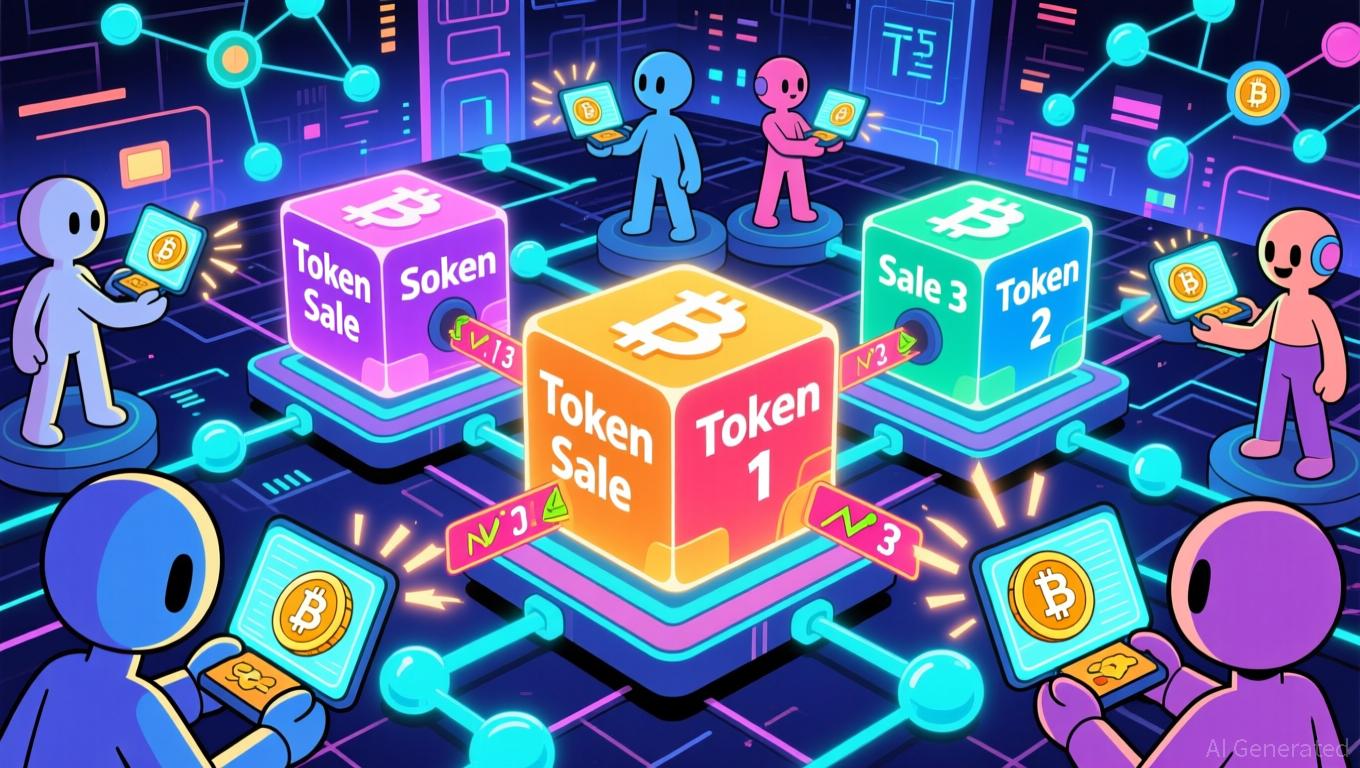The PLG Dilemma: Why Sales Remains the Overlooked Key to Revenue
- Product-led growth (PLG) prioritizes product adoption but risks undervaluing structured sales strategies, creating a blind spot for non-technical leaders. - Non-technical operators must act as "Translator-in-Chiefs," aligning technical innovation with market demand through three pillars: product architecture understanding, systematized sales forecasting, and CFO-focused financial metrics. - By institutionalizing sales as a revenue blueprint rather than a cost center, PLG startups can transform innovation
The emergence of product-led growth (PLG) has transformed the startup landscape, putting engineering and product teams at the center of driving innovation. However, as
The PLG Paradox: Rethinking Sales as a Strategic Function
The PLG approach, which places product usage at the heart of growth, has caused many startups to overlook the value of structured sales processes. While technical founders concentrate on building scalable products,
A major obstacle is the "language gap" between technical and business teams. Engineers communicate in terms of APIs and microservices, while finance professionals focus on metrics like ROI and payback time. Non-technical leaders must serve as chief translators, converting technical progress into measurable financial benefits.
Three Foundations for Building Revenue Systems
Olusanya identifies three essential pillars for non-technical leaders to create enduring revenue frameworks:
1.
Non-technical executives need a thorough grasp of their product’s structure—not to develop it, but to position it strategically. By pinpointing the "narrow wedge" where their product excels, they can align product momentum with revenue objectives. For instance, when engineering teams launch new integrations,
2.

3.
To appeal to CFOs, proposals should emphasize risk, expense, and returns. Olusanya suggests centering each deal on three key metrics: the cost of doing nothing, potential revenue increase, and net dollar retention (NDR).
From Salesperson to Strategic Ally
The responsibilities of non-technical leaders in PLG startups are shifting from being mere sellers to becoming strategic partners. By positioning themselves at the crossroads of product, sales, and finance, these leaders help ensure that innovation translates into scalable business outcomes rather than remaining a costly experiment. As
For startups operating in the PLG space, the key question is no longer whether to focus on sales, but how to design it for maximum effectiveness.
Disclaimer: The content of this article solely reflects the author's opinion and does not represent the platform in any capacity. This article is not intended to serve as a reference for making investment decisions.
You may also like
Trump Alleges BBC Engaged in "Dishonesty" in $5 Billion Libel Case Regarding Altered Speech
- Trump sues BBC for $1B–$5B over edited 2021 speech, claiming it falsely portrayed him as inciting Capitol riot. - BBC apologized for "judgment error" but refused compensation, asserting no legal basis for defamation claims. - BBC's director-general and news head resigned amid political backlash, while UK officials defended its journalistic integrity. - Legal experts debate viability, with BBC arguing the U.S.-unbroadcast edit was unintentional; Trump claims "overwhelming harm." - Critics fear taxpayer-fu

Conflicting Strategies and Stalemates Worsen the U.S. Housing Affordability Problem
- A real-estate executive warns post-pandemic interventions entrenched housing unaffordability for a generation, worsening structural cost issues. - Democrats leverage affordability as a political issue, contrasting Trump's 50-year mortgage proposals with concerns over favoring lenders over households. - Treasury Secretary Bessent prioritizes financial market stability to support affordability, while Dallas FHLB allocates $8.7M for storm-resistant affordable housing. - Fed Chair Powell emphasizes cautious

Hyperliquid (HYPE) Price Fluctuations: Changing Market Sentiment During DeFi Liquidity Developments
- Hyperliquid (HYPE) faced 2025 liquidity crises from market manipulation and API outages. - November POPCAT spoofing caused $4.5M+ bad debt via leveraged position attacks. - July API outage exposed centralized infrastructure risks during $14.7B open interest. - TVL surged to $2.15B despite whale-driven volatility and anchoring bias effects. - Investors must balance DeFi innovation with systemic risks in fragile liquidity pools.

Uniswap News Today: Uniswap's CCA Makes Token Launches More Accessible, Reducing Whale Influence
- Uniswap v4 launches Continuous Clearing Auctions (CCA), a permissionless protocol for transparent, community-driven token launches with Aztec. - CCA divides token sales into blocks settled at market-clearing prices, reducing volatility and sniping while enabling equitable distribution. - The protocol automatically seeds liquidity post-auction and supports privacy via Aztec's ZK Passport, marking a DeFi innovation in fair token distribution. - CCA aims to standardize on-chain price discovery, countering w
